LiA Review Blog - A Secondary School Sleep Health Programme (Part I)

While my nominal project period did not start until the end of June, preparation work commenced as early as I completed the examinations in mid-May, with pitch decks and posters being sent to various local schools. This required careful discussions with the programme team and lab staff before deciding on the main programme components, and what to work on next. Recruitment was relatively smooth and saw a healthy mix of local and international, as well as overseas students applying. We then hosted online interviews with the lab manager and soon shortlisted the inaugural cohort of the Summer Research Programme for Secondary School Students at the Sleep Research Clinic and Laboratory, HKU – yes it's the first time they are holding this programme, and I was so excited to take up the important role as the Programme Coordinator to primarily run this project, as well as making all the relevant onsite day-to-day operational decisions. (Shortly after, I headed off for a solo trip as holiday started~)

Upon returning from a much-needed retreat in Japan in June, I headed back straight to work with the senior lab staff/ research team members, including my main supervisor Dr Forrest Cheung, who is a postdoctoral research fellow at the lab. We had productive meetings and started to build this new project together bit by bit. From arranging the schedules at a holistic level to laying out the detailed rundown of each event, piecing this four-week programme requires meticulous planning and collaboration from all parties involved. We have research assistants and lab staff who look after the administrative side of the lab, postgraduates (MPhil/PhD) who will provide research mentorship and guidance to our incoming student interns, other undergraduate students (interning at the lab) who will serve as programme leaders to assist in different programme components like ice-breaking and helping to lead smaller projects under the programme, like producing psychoeducation materials or promotional outings.
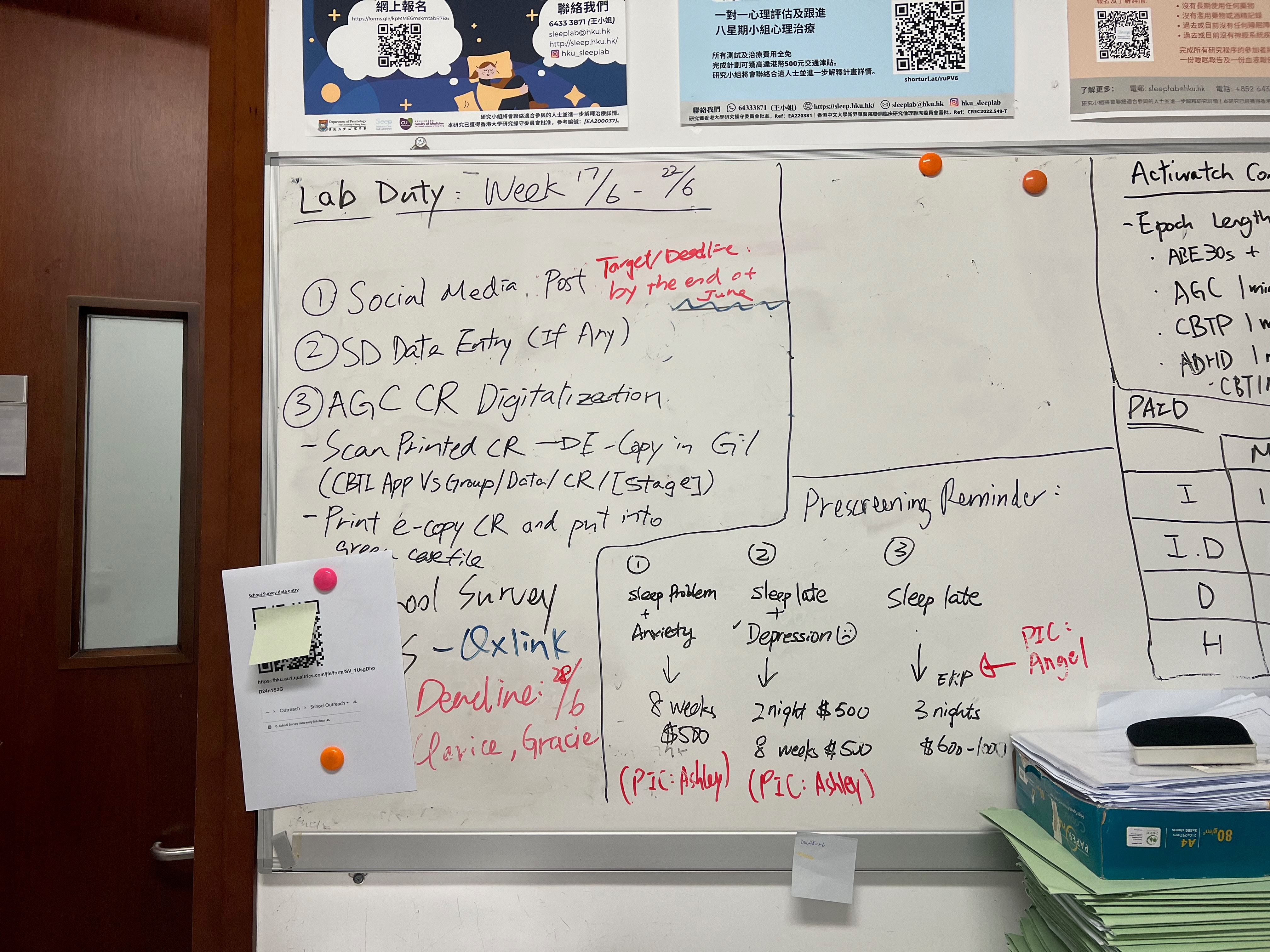
As mentioned, this is not the first time I am working with the lab, so it required little to no time to get along with the staff and members. However, as this project is new to everyone, we are all eager to propose new ideas and try our best to make this the best programme possible. Preparation work ramped up in the week leading to the programme launch, with briefings given to UG programme leaders who are tasked with certain sub-components throughout the coming four months and meetings with mentors and workshop facilitators to finalise the rundown. It was tough, but rewarding to see things starting to make sense together. There were many tasks to complete (including printing and glueing name tags), but with the assistance of lab staff and my supervisor, we still managed to put things together in time for a successful launch in the coming week.
What I have learnt so far is definitely the art of trusting and allowing others to help – it is impossible to plan and prepare for such a huge programme without delegating tasks. While I am working on a holistic planning level, there has to be someone to look after the intricate details, and that's when my trustworthy teammates are very important. A one-man show is not going to work, and I am glad to have known that before starting, which made the preparation week much smoother.
(While the planning part involves more people, I am the person who is responsible for most on-the-day operations – after all the research staff and students have their ongoing projects to cater for!) Considering that it's the first time I am running a programme largely on myself, and also the first time I facilitated an ice-breaking session, the programme induction and orientation went very well. The inaugural cohort was not huge at 14 (ended up with 13 due to an unfortunate drop-out), but it also meant that they were cohesive. The small group size helped them to get along as soon as possible and also made administrative management less of a hassle - I could more easily process individual requests and tailor the responses where necessary. Flexibility is important as a great leader, and I am glad that there was the opportunity for me to offer that to the participants.
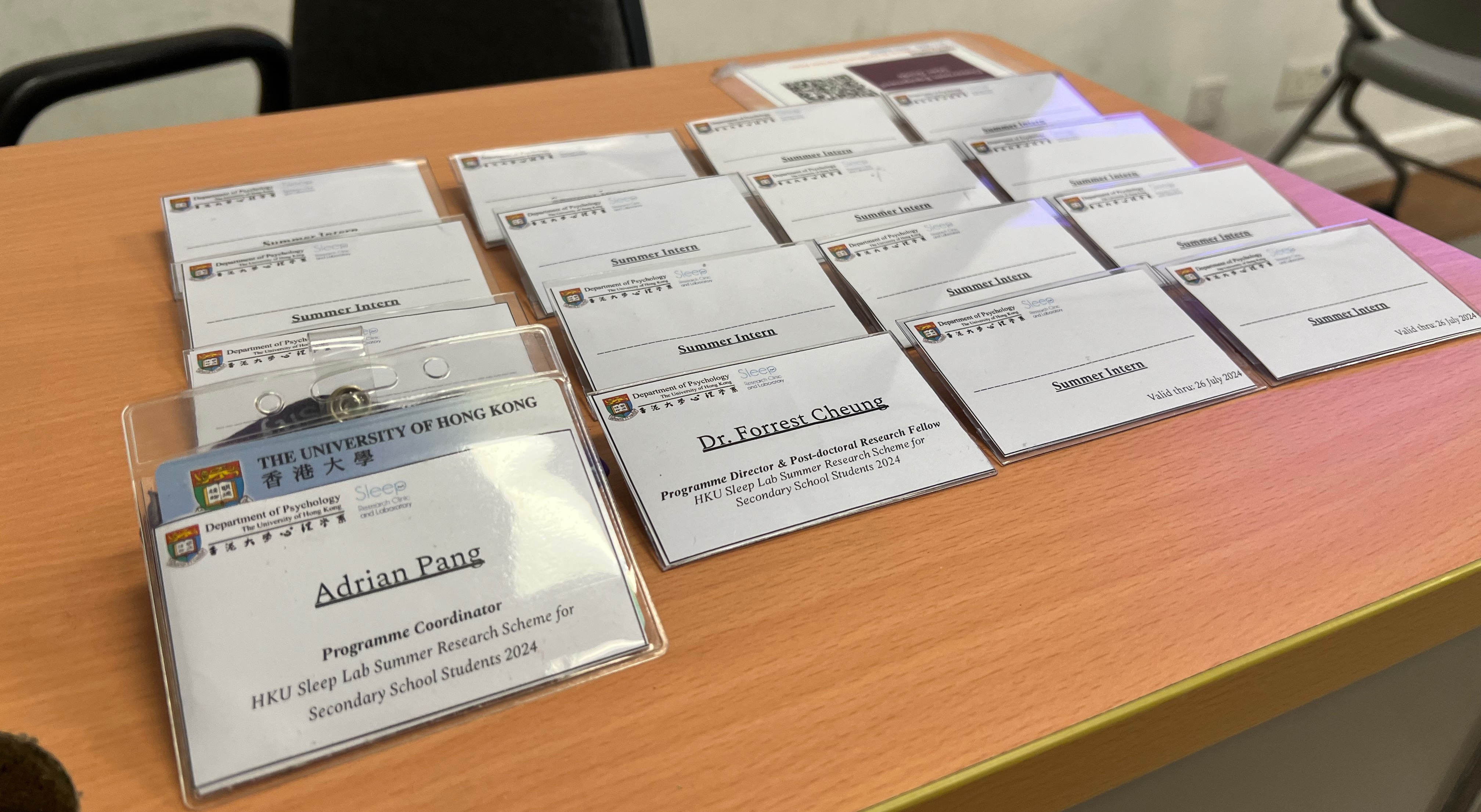
We had polysomnography workshops on the first afternoon, visiting the sleep sciences laboratory in the Faculty of Medicine. I "volunteered" my head for the demonstration of electrode placement in an EEG (electroencephalography) setup when none of the participants were willing to. In fact, even I have performed PSGs many times as an assistant and until more recently as the experimenter-in-charge, that was the first time I experienced the process as the person on the other end. I believe this is similarly important as a leader – to think (, and be) in other's shoes, so we could be more empathetic with our decision-making. For the rest of the week, I taught two lectures on psychology and research methods, and of course, handled the bulk of administrative duties such as attendance taking and managing the student participant log. I also facilitated the first mentor session by previously having assigned mentors to different students according to their preferred projects and interests.
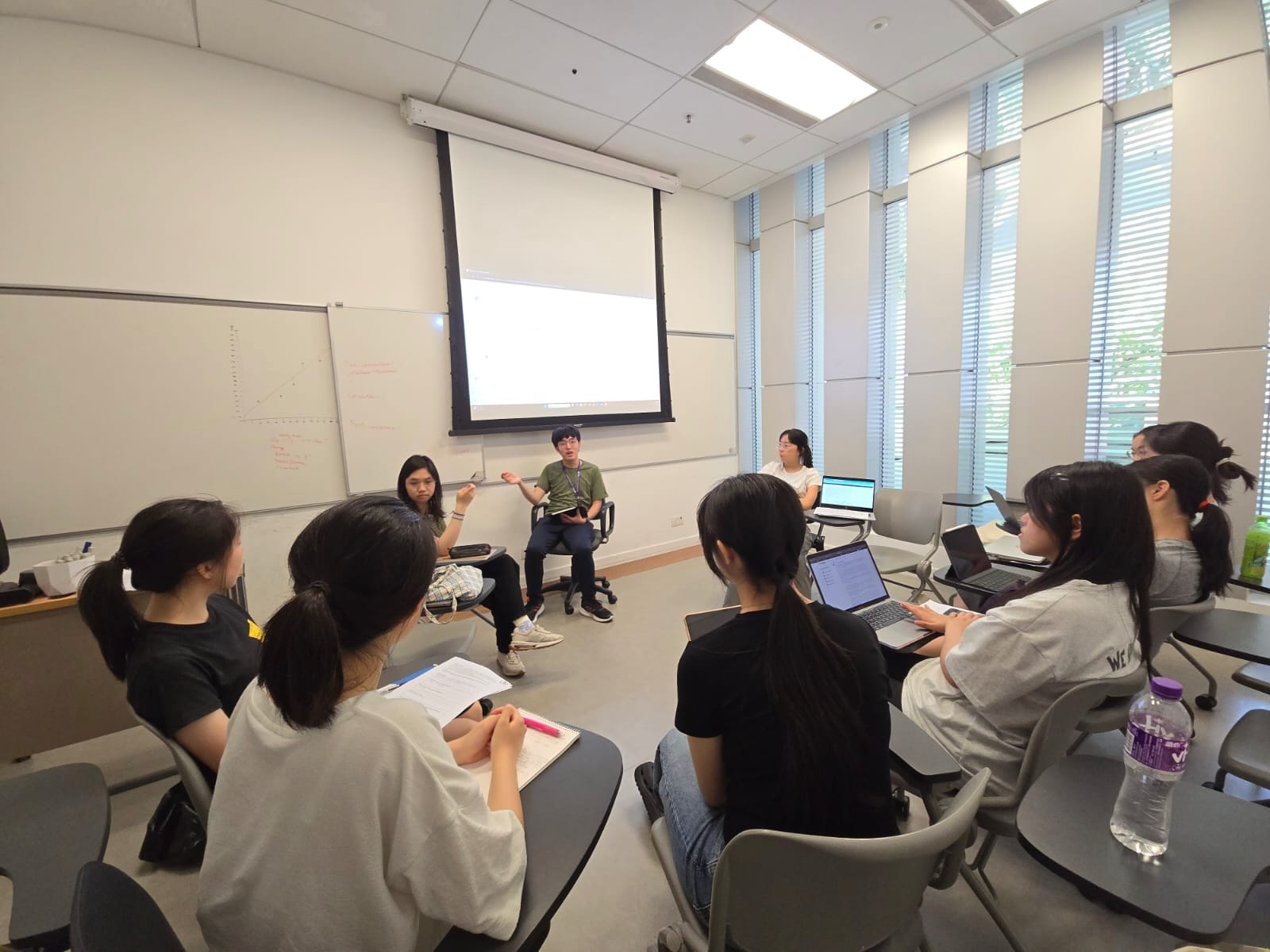
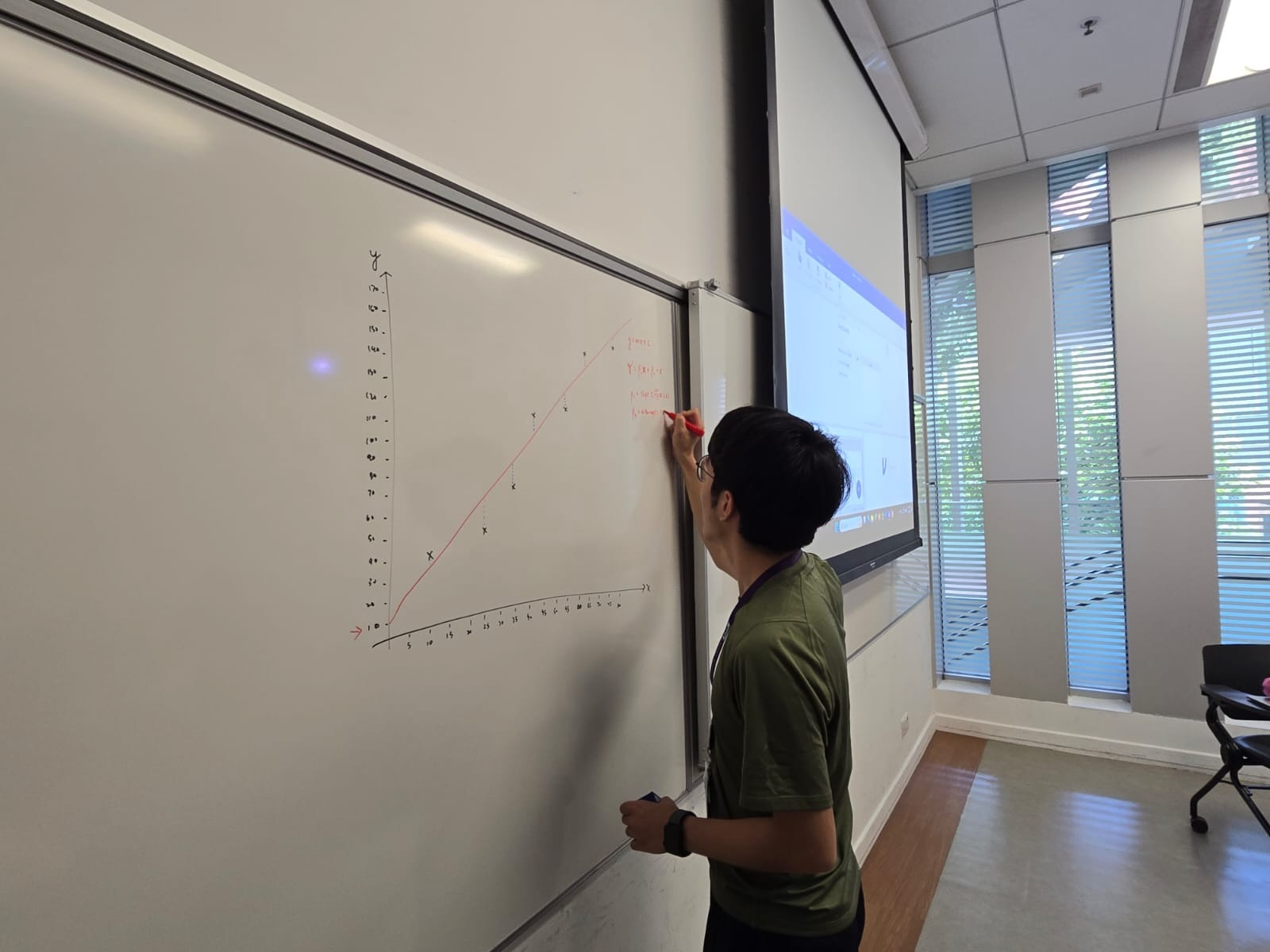
Overall speaking, there were many first times this week, and I was extremely happy with the first week of the programme being that smooth. I started to remember their names, and the students were getting along with one another too!
The second week saw more lectures and workshops spanning a wide range of expertise. We had sleep and cognition lectures led by current postgraduate (MPhil/PhD) students, psychiatrists sharing about sleep disorders, and clinical psychologists taught them about abnormal psychology and clinical interview skills. The high school students also joined the team of research assistants on promotional outings, first within the HKU campus after brief training. While I took a back seat on those days when the experts gave their lectures and held workshops, I started meeting new colleagues (undergraduate interns cum programme leaders in this project) who joined the lab in the later stage in preparation for the upcoming two weeks, including the final Designathon challenge in week 4. Allow me to introduce more about the diverse team of students I worked with in Part II (Weeks 3-5) of the LiA Review Blog.
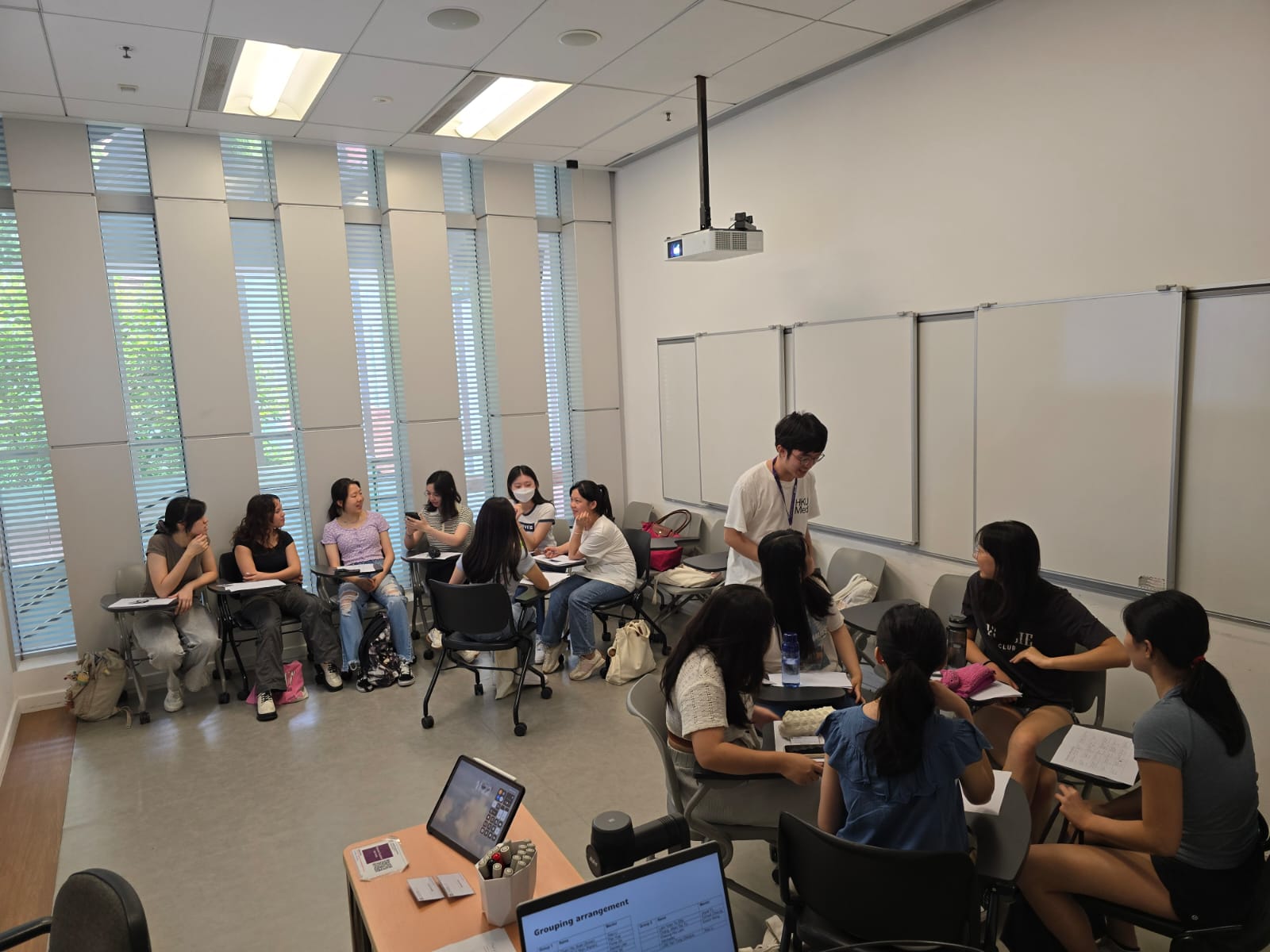
An important lesson or interaction that I went through this week was on the administrative side. The team decided earlier to set an 80% attendance requirement that could potentially risk forfeiture of their deposit (as stipulated clearly in the consent form drafted by yours truly :)); causing students to start having concerns when they began taking days off due to other school events. As the frontline administrator of the project, of course, I am vested with certain (and considerably high) levels of decision-making authority with the day-to-day operations. While I certainly understand the compulsory nature of school activities, they have also signed an consent form to fully take part in the programme. One could make a case that giving them leniency would defeat the purpose of setting up agreements in the first place. Ultimately, after some deliberation between me and the Programme Director, we decided on giving discretionary consideration on a case-by-case basis for waiving the requirements should they present relevant proof. Some of the students are still eager to earn a participation certificate (despite the rules saying that they will not if they fail to reach the attendance requirement), and I managed to negotiate for them – albeit with a catch, as the certificates will specify the details of lower attendance fulfilment. It may be hard to learn where and how to compromise, and I believe I am on the right track to better grasp the better standard!
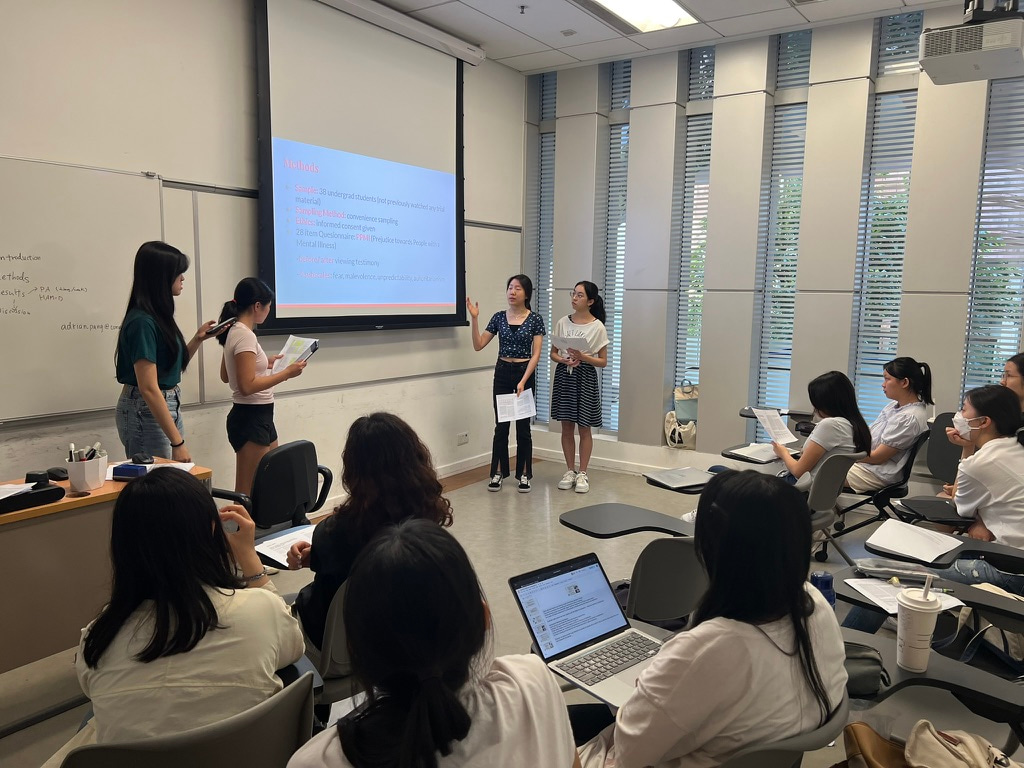
The second week was overall successful, with sometimes tough questions to answer and complicated administrative hurdles to overcome. Yet, I am happy that the rudimentary semi-automated roll-call system built with Google Forms and Excel formulas worked well after many times of trial-and-error in Week 0 (before the programme started). I could not wait for the two big projects coming in weeks 3 to 4, so stay tuned for Part II of this LiA Review Blog~
==
*Photo courtesy of Dr Forrest Cheung, Postdoctoral Research Fellow at HKU Sleep Lab (those marked with an asterisk, see captions)
Note: The nominal project period runs from 24 June to 8 Aug for six weeks. As the induction day (in w/c 1 Jul) for programme high school participants is denoted as in week 1, the actual first week of the nominal project period becomes week 0. As noted in this LiA review blog and the project online, project-related work would have commenced before the nominal period (which covers the four-week programme itself). Weeks 0 to 5 in this (and subsequent) blogs or reviews, hence, correspond to other scholar's weeks 1-6.






Please sign in
If you are a registered user on Laidlaw Scholars Network, please sign in